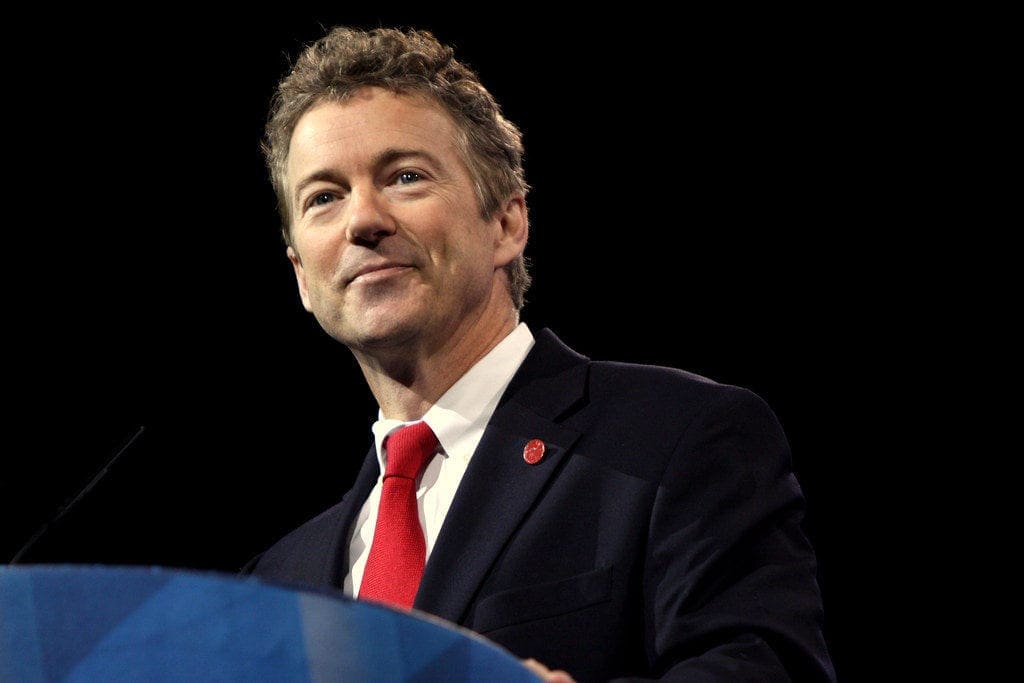It always feels like Kentucky Senator Rand Paul is on an island in Washington, D.C.
Late last month Paul introduced an amendment to a spending bill that would have cut spending by 2 percent compared to 2019 projections. The majority of the Senate voted against the bill, which was defeated in a 67-24 vote. Paul’s amendment would have applied to a larger spending package that concerns commerce, science, and transportation matters, among other things.

Previously, the senator tried to push through a balanced budget proposal in June. As expected, Paul’s efforts were rejected by his big spender colleagues. With the national debt standing at $23 trillion, and the deficit projected at $984 billion for 2019, it’s becoming abundantly clear that Washington’s political leadership has no interest in exercising fiscal responsibility. The U.S. government is simply too big. For the past century, there has been a bipartisan consensus surrounding issues such as foreign policy and domestic policy.
Republicans and Democrats work tirelessly to expand the size of the federal government no matter who’s in power. A lot of this largely due to the Federal Reserve’s easy money policies which help finance big spending. Income taxation also plays a substantial role in raising the revenue that spendthrift politicians need to implement their programs. It’s no coincidence why after the 1910s — the decade that both the income tax and the Federal Reserve were created — the government has grown non-stop, without any significant push to roll back these expansions.
Senator Paul’s father, Ron Paul, spent most of his career fighting government overreach. Now, his son is following in his footsteps as the sole voice of reason in the U.S. Senate. From advocating for the abolition of our broken income tax system to constantly introducing fiscally conservative bills, the Kentucky senator has been a lone voice for fiscal sanity since his election in 2010.
Unlike his colleagues, he’s actually willing to introduce legislation that can put the government back on the path to fiscal restraint. It’s one thing to talk about reducing the size of government with tired talking points about how “households have to balance their budget.” It’s another to put forward legislation that allows voters and citizen groups to know who is for real and who is pretending.
If we want some semblance of fiscal discipline at the federal level, more politicians like Rand Paul must step up to the plate.

























